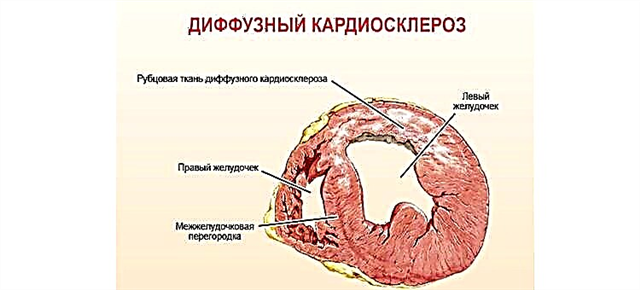Discomfort when swallowing saliva is a symptom that signals the presence of pathological processes in the respiratory organs. A sore throat can be triggered by an infectious disease, trauma, inflammation of the thyroid gland, tumors, osteochondrosis and neuroses.
 The principles of treatment are determined by the mechanism of development of uncomfortable sensations, their localization and intensity. Ignoring a pathological symptom can lead to the development of complications. In the case of an infectious inflammation of the mucous membranes of the pharynx, the occurrence of a paratonsillar abscess, false croup, otitis media, etc. is not excluded.
The principles of treatment are determined by the mechanism of development of uncomfortable sensations, their localization and intensity. Ignoring a pathological symptom can lead to the development of complications. In the case of an infectious inflammation of the mucous membranes of the pharynx, the occurrence of a paratonsillar abscess, false croup, otitis media, etc. is not excluded.
The progression of ENT disease leads to an intensification of pain and a deterioration in the patient's well-being. Untimely elimination of swelling in the tissues is fraught with stenosis of the throat and suffocation.
Etiology
Why are there uncomfortable sensations in the throat on one side when swallowing? The symptom is nonspecific, so it can be caused by various reasons. They are conventionally divided into two categories:
- infectious - provoked by the development of pathogenic viruses, fungi, protozoa and bacteria;
- non-infectious - caused by dysfunction of other organs and systems, trauma and autoimmune disruptions.
In most cases, the discomfort localized in the pharynx is associated with the development of a pathogenic flora. Risk factors for anxiety symptoms include:
- a sharp change in temperature regime;
- hypovitaminosis and anemia;
- bad ecology;
- secondary immunodeficiency;
- chronic diseases;
- drug abuse;
- addictions;
- medical manipulations.
It should be understood that on the mucous membranes of the ENT organs, there is a considerable number of opportunistic microorganisms in constancy. Their number is constantly monitored by immunocompetent cells, which prevent tissue infection.
 However, in the case of a decrease in the body's resistance, lymphocytes, phagocytes and other immune cells cannot cope with their task, which becomes an impetus for the spread of pathogenic flora.
However, in the case of a decrease in the body's resistance, lymphocytes, phagocytes and other immune cells cannot cope with their task, which becomes an impetus for the spread of pathogenic flora.
Pathogens multiply in the cells of the host, as a result of which the latter are destroyed and die.
That is why lesions appear in the places of localization of harmful agents, which are characterized by tissue melting, hyperemia, edema and, accordingly, soreness.
Symptoms
Discomfort when swallowing saliva can have varying degrees of intensity, as evidenced by the manifestation of various subjective symptoms - burning, dryness, lump in the throat, perspiration, etc. If the problem is caused by a respiratory infection, there are often accompanying symptoms of the disease:
- hoarseness of voice;
- myalgia;
- malaise; pain radiating to the ear;
- lack of appetite;
- runny nose;
- enlarged lymph nodes.
Acute inflammation of the throat tissue is indicated by subfebrile or febrile fever.
The development of pathogenic flora in the body stimulates the functioning of the immune system. An increase in temperature is a normal reaction of the body, which helps to eliminate pathogenic agents in the lesions.
 Hyperthermia stimulates the production of interferon, which takes part in the destruction of viral pathogens. In addition, temperatures above 38 ° C are unfavorable for the growth of bacteria.
Hyperthermia stimulates the production of interferon, which takes part in the destruction of viral pathogens. In addition, temperatures above 38 ° C are unfavorable for the growth of bacteria.
It should be noted that dry spastic cough does not always indicate the presence of septic inflammation in the ENT organs.
Such symptoms often arise in the case of the development of oncological diseases, therefore, if a constant cough occurs and a feeling of squeezing of the pharynx occurs, you should seek the help of a specialist.
Possible diseases
If it hurts the patient to swallow on the right side, what is the reason? If discomfort occurs localized, for example, on the lateral or posterior pharyngeal wall, it is usually not difficult for a specialist to make a correct diagnosis. The relatively specific nature of the manifestation of pain narrows the spectrum of possible diseases. These include:
| Localization of pain | Possible pathologies |
| pharynx |
|
| palatine tonsils (tonsils) |
|
| other localization |
|
 Bacterial inflammation of the ENT organs is fraught with the development of formidable complications leading to damage to the heart, kidneys, liver, joints and brain.
Bacterial inflammation of the ENT organs is fraught with the development of formidable complications leading to damage to the heart, kidneys, liver, joints and brain.
Untimely elimination of pathogenic flora increases the risk of developing local complications. If pain in the throat radiates to the ears, this may indicate the development of otitis media.
Due to the close proximity of the auditory analyzer and the brain, the risk of developing meningitis, brain abscess, etc. increases many times.
Diagnostics
Why does the throat hurt only on one side? In case of pain, perspiration and a feeling of dryness in the throat, you should seek help from an otolaryngologist. Due to the risk of progression of the pathogenic flora, it is impossible to start treatment without an accurate diagnosis. After a visual examination of the throat, the specialist will conduct several laboratory tests:
- radiography;
- pharyngoscopy;
- bacteriological culture;
- general blood analysis.
If necessary, the doctor can refer the patient to an infectious disease specialist, gastroenterologist, oncologist, neurologist and other doctors of a narrower specialization. After the diagnosis is made, the patient will be prescribed appropriate treatment with medication, physiotherapy or surgery.
When examining patients, it is imperative to consult a dentist. Even if caries has not become the main cause of the development of inflammatory processes, decayed teeth can become additional foci for the development of pathogenic flora. Delayed elimination of caries can cause damage to the trigeminal nerve, which is fraught with the development of facial paresis.
Diseases of the pharynx
 If it hurts the patient to swallow saliva, in most cases this is due to the development of inflammation in the pharyngeal mucosa. Catarrhal tissue inflammation is caused by the development of respiratory pathologies, in which the airways are affected by pathogenic viruses or microbes. Pathological processes in the ciliated epithelium stimulate mucus hypersecretion, which causes additional irritation of pain receptors.
If it hurts the patient to swallow saliva, in most cases this is due to the development of inflammation in the pharyngeal mucosa. Catarrhal tissue inflammation is caused by the development of respiratory pathologies, in which the airways are affected by pathogenic viruses or microbes. Pathological processes in the ciliated epithelium stimulate mucus hypersecretion, which causes additional irritation of pain receptors.
The greatest danger to the patient's health is the pharyngeal abscess, in which unbearable pain occurs when swallowing.
Tissue abscess is preceded by rhinitis, scarlet fever, flu, tonsillitis, measles and other ENT diseases. Due to the reduced reactivity of the body, pathology is most often found in preschool children.
The development of a retropharyngeal abscess is signaled by the appearance of the following symptoms:
- severe pain when swallowing;
- penetration of food into the nasopharynx;
- labored breathing;
- enlargement of the cervical lymph nodes;
- febrile fever;
- hoarseness of voice.
If the problem is ignored, the bacterial infection progresses rapidly, as a result of which the patient's swallowing reflex is impaired.When profuse salivation appears, you need to call the ambulance team.
Pathology of the palatine tonsils
Localization of pain in the pharynx on the right may indicate inflammation of the glands and peri-mendalic tissues. Similar symptoms are characteristic of acute tonsillitis, which is provoked by pathogenic bacteria. As a rule, pathological processes occur in one of the tonsils, but if untreated, it is possible that the organs of the entire pharyngeal ring will be damaged.
 Angina is a formidable disease that often leads to the development of local and systemic complications. Particularly dangerous is the disease caused by beta-hemolytic streptococcus.
Angina is a formidable disease that often leads to the development of local and systemic complications. Particularly dangerous is the disease caused by beta-hemolytic streptococcus.
In the case of generalization of inflammatory processes, damage to the kidneys, heart, joints and brain is observed, which is signaled by the development of pyelonephritis, meningitis, pericarditis, rheumatoid arthritis, etc.
In children under the age of 7-8 years, inflammation of the tonsils is often complicated by a paratonsillar abscess.
With the progression of the disease, pathogens penetrate into the periaminal tissues, as a result of which edema occurs with the formation of purulent plaque on the inner surface of the airways.
Symptoms of the development of a paratonsillar abscess are:
- high temperature (over 39 ° C);
- intolerable sore throat, radiating to the jaw;
- discomfort in the throat when turning the head;
- enlargement of the cervical lymph nodes;
- difficulty swallowing and breathing;
- trismus of the chewing muscles;
- nasal and slurred speech.
Treatment of an abscess involves the preliminary opening of abscesses by surgery. After that, the patient is prescribed antibacterial therapy with the use of sanitizing procedures.
Important! Warming up the throat with the development of bacterial inflammation can aggravate the course of the disease and cause serious complications.
Other reasons
 Why can the pharynx hurt when swallowing? Intense pain in the larynx can be caused by neuralgia. Inflammation of the glossopharyngeal nerve, provoked by the development of pathogens, contributes to the destruction of the protective film of the nerve, as a result of which unbearable pain occurs in the tonsils, larynx, soft palate, etc.
Why can the pharynx hurt when swallowing? Intense pain in the larynx can be caused by neuralgia. Inflammation of the glossopharyngeal nerve, provoked by the development of pathogens, contributes to the destruction of the protective film of the nerve, as a result of which unbearable pain occurs in the tonsils, larynx, soft palate, etc.
Infectious ENT diseases, such as tonsillitis, flu, measles, etc., can cause neuralgia.
Often, nerve damage is preceded by a failed tonsillectomy or tracheotomy.
In the event of unbearable pain in the larynx, patients complain of:
- dry throat;
- lack of taste;
- sharp pain during a conversation;
- salivation;
- migraine.
Unilateral pain can signal the onset of Helger's syndrome, in which the carotid artery dilates. In rare cases, discomfort when swallowing is due to the appearance of a thorn-sublingual syndrome, characterized by an elongation of the process on the temporal bone.
At the age of 18 to 26 years old, the eruption of "wisdom teeth" can become the cause of an unpleasant symptom. The painful process is accompanied by damage to the tissues adjacent to the teeth, as a result of which there is a risk of infection of the mucous membrane of the oropharynx. To prevent septic inflammation, throughout the entire period of teething, you need to rinse the mouth with a decoction of sage or chamomile.
First aid
 How to eliminate discomfort when swallowing?
How to eliminate discomfort when swallowing?
The means of symptomatic therapy can quickly stop the local manifestations of ENT diseases.
However, it should be borne in mind that they only eliminate the symptoms of the disease, and not the cause of its occurrence. As a rule, the following types of drugs are included in the palliative therapy regimen for infectious inflammation in the pharynx:
| Drug type | Drug name |
| sprays and aerosols for extinguishing the oropharynx |
|
| lozenges and lozenges |
|
| rinsing solutions |
|
| Medicinal solutions for inhalation with a nebulizer |
|
 Failure to comply with the dosages recommended by specialists leads to the development of drug toxicosis and side reactions.
Failure to comply with the dosages recommended by specialists leads to the development of drug toxicosis and side reactions.
It is possible to eliminate puffiness in the mucous membranes of the airways with the help of antiallergic drugs. They interfere with the synthesis of inflammatory mediators, which contributes to the regression of pathological processes in the respiratory organs.
The most effective means include "Clemastin", "Zyrtec", "Erium" and "Telfast".
Prophylaxis
Is it possible to prevent inflammation of the ENT organs? People with reduced body reactivity are susceptible to infectious diseases. Therefore, upon contact with infected people, they quickly fall ill, as a result of which discomfort in the throat, symptoms of intoxication, etc. appear. To prevent the development of respiratory diseases, you should:
- timely treat dental caries;
- improve the level of personal hygiene;
- take vitamin and mineral complexes 2 times a year;
- use immunostimulants in anticipation of seasonal illnesses;
- include in the diet foods rich in vitamins and minerals;
- avoid overheating and hypothermia;
- treat exacerbations of chronic diseases in time.
Compliance with elementary rules contributes to an increase in local and general immunity, as a result of which the body's resistance to pathogenic agents increases.



